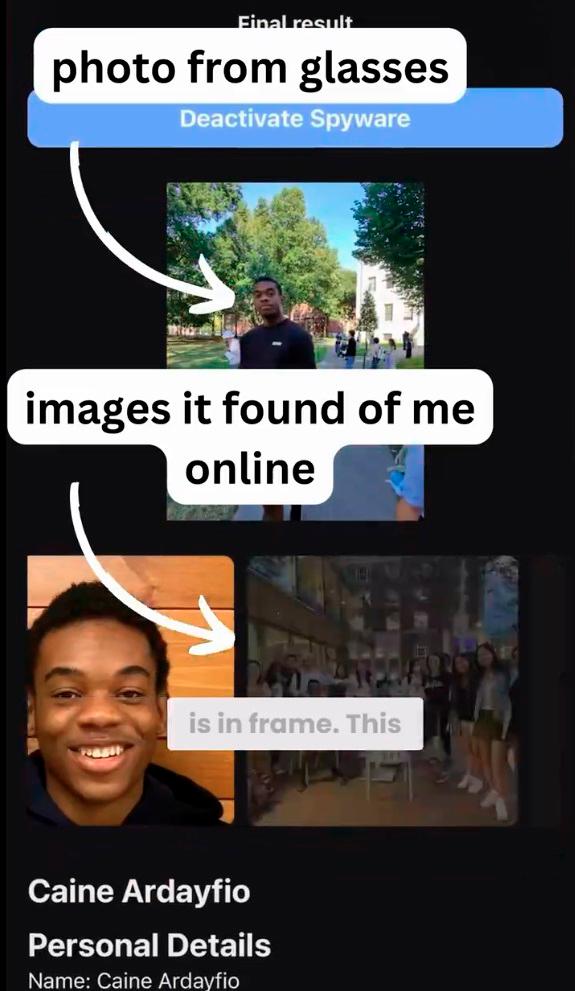JUST over a decade ago, the video game Watch Dogs allowed players to see the names, jobs, addresses and other private details of every human in the game just by having players walk around. Even before the game, films had shown glimpses of what it would look like in a dystopian future, where everyone’s details are accessible through “future tech”.
In 2024 with rapidly growing artificial intelligence (AI) technology, two Harvard students have shown that the aforementioned future has already arrived.
AnhPhu Nguyen and Caine Ardayfio have developed an alarming demo using facial recognition tech to instantly extract and collate personal details of everyone in their field of view by using smart glasses.
Almost like a cherry on top of the unsettling cake, the duo did it by using publicly accessible databases and easily obtainable technology like Meta’s Ray-Ban smart glasses.
Posted on X, AnhPhu captions the video of the demo by saying: “Are we ready for a world where our data is exposed at a glance?”
Unholy tech marriage
Calling it I-Xray, their tech works by using the smart glasses’ ability to livestream video to Instagram and as that is occurring, a computer program is trained on the stream to use AI to identify faces in front of the wearer.
In what appears to be less than five seconds, faces that are successfully scanned are then fed into a public database. Information such as the captured person’s names, addresses and phone numbers are then sent to a phone app.
AnhPhu and Ardayfio show how fast the entire process takes in their video, in which they use their tech on their friends and even complete strangers.
During several instances, AnhPhu uses the information gleaned to start conversations with the latter group, pretending to know them by using the information obtained through I-Xray.

Privacy concerns and ethical implications
Though facial recognition technology is nothing new, the real danger is how it is being used here in tandem with consumer gadgets such as standard Android phones and smart glasses with discreet recording capabilities.
For Meta, the company stresses that users of its smart glasses to “respect people’s preferences” as part of its privacy policy. They also suggest users to use gestures or voice controls when recording, live streaming or snapping pictures.
Despite what the policy states, it ultimately signals the company washing its hands and pushing responsibility onto users to actually use the Ray-Bans ethically and morally.
“The purpose of building this tool is not for misuse and we are not releasing it,” AnhPhu and Ardafiyo wrote in a document regarding I-Xray.
Instead, the students say their goal is to raise awareness over the current state of AI and technology. The Harvard duo have also provided how people can take proactive steps to protect themselves by limiting the information about oneself available online as attempting to completely scrub a person’s digital footprint is an exercise in futility.









